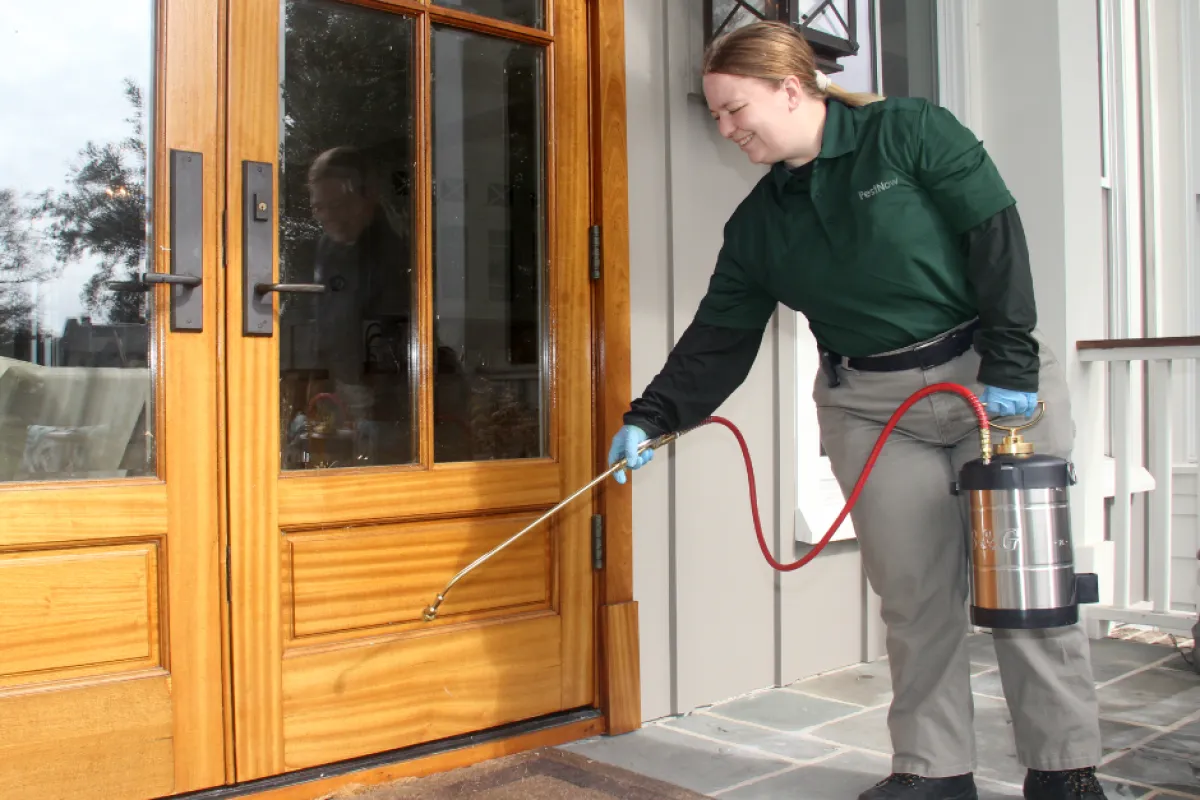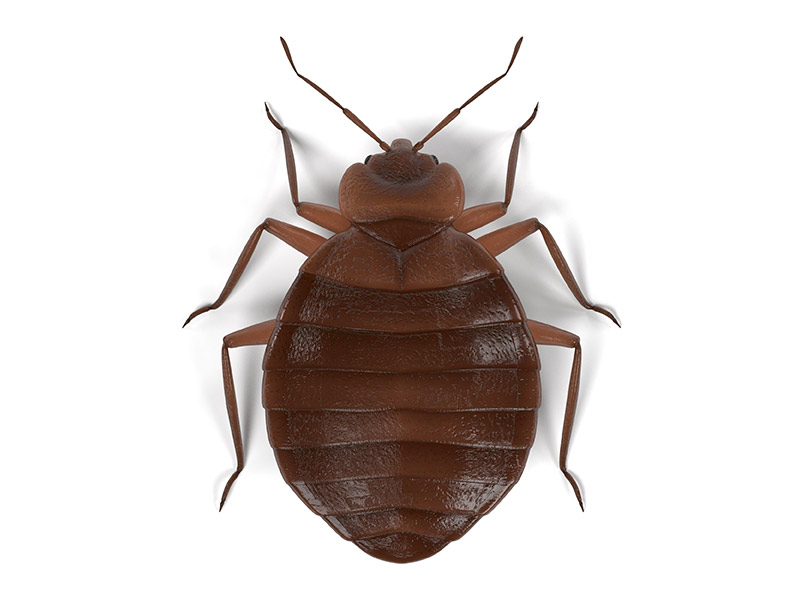Guaranteed Pest Control in Port Charlotte for a more comfortable living space.
Guaranteed Pest Control in Port Charlotte for a more comfortable living space.
Blog Article
Checking Out Ingenious Techniques and Products for Efficient Parasite Control
The landscape of pest control is advancing, marked by the introduction of ingenious methods and products created to improve performance and sustainability. From clever traps outfitted with advanced monitoring systems to organic methods that utilize all-natural predators, these advancements provide a paradigm shift in exactly how we come close to pest management. Moreover, eco-friendly chemical choices and pheromone disturbance strategies offer targeted options that straighten with environmental stewardship. As the sector comes to grips with these growths, a closer exam reveals not only their effects yet also the prospective challenges that might arise in their implementation.
Smart Traps and Checking Systems
How can modern innovation boost parasite management? One substantial innovation is the advancement of wise traps and checking systems, which give real-time data and analytics for reliable bug control. These systems use sensing units and wireless innovation to detect bug activity, signaling property managers and bug control professionals to infestations prior to they escalate.
Smart catches are geared up with features such as lure terminals that attract pests and capture them efficiently. These traps can be kept track of from another location, permitting timely interventions and decreasing the need for substantial chemical applications. Additionally, the integration of artificial intelligence algorithms enables these systems to differentiate in between target insects and non-target types, improving the accuracy of parasite control procedures.
In addition, the information gathered from smart traps can be analyzed to recognize patterns in insect behavior and ecological elements adding to infestations (Pest Control in Port Charlotte). This information is indispensable for creating targeted pest monitoring techniques customized to specific settings. By embracing smart traps and monitoring systems, parasite control specialists can improve their functional performance and minimize the eco-friendly impact of insect administration, inevitably bring about safer and a lot more sustainable practices in the sector
Biological Insect Control Methods
Making use of all-natural killers and parasites, organic pest control techniques provide an environmentally friendly alternative to chemical treatments. This technique includes the introduction or improvement of specific organisms that can normally control pest populaces, consequently decreasing reliance on artificial pesticides. Typical examples include making use of ladybugs to manage aphid problems and parasitic wasps to target caterpillars.

Biological control can be classified into three major techniques: classical, augmentative, and preservation. Classical biological control includes importing natural opponents from the pest's indigenous habitat, while augmentative control includes boosting the population of existing natural enemies with launches. Conservation strategies concentrate on developing conditions that sustain these useful microorganisms in the community.
The performance of biological parasite control rests on comprehending the intricate communications within environments. It often calls for an extensive analysis of insect characteristics and the life cycles of both the insects and their all-natural adversaries. While biological approaches may not offer immediate results like chemical alternatives, they add to lasting parasite administration and ecosystem health. As awareness of ecological problems grows, organic insect control techniques are increasingly recognized for their lasting function in incorporated bug administration programs.
Eco-Friendly Chemical Alternatives
Green chemical choices offer a sensible solution for pest administration that minimizes environmental influence while successfully controlling insect populations. These options are acquired from natural sources and are thoroughly formulated to target particular parasites without damaging useful microorganisms, making them an essential element of lasting insect control methods.
Among one of the most efficient environment-friendly options are plant-based pesticides, such as neem oil and pyrethrin, which are originated best site from the seeds and blossoms of various plants. These compounds disrupt the life cycles of parasites, reducing their populations without the hazardous effects connected with traditional chemicals - Pest Control in Port Charlotte. Furthermore, vital oils like pepper mint and clove oil exhibit repellent buildings, further improving their energy in bug monitoring

In addition, eco-friendly chemical choices frequently break down quicker in the environment, click to find out more lowering the risk of dirt and water contamination. This particular aligns with the boosting customer need for lasting practices in agriculture and metropolitan bug control. As research study remains to development, the growth of ingenious green formulas will certainly further enhance efficacy and expand application locations, making it possible for pest monitoring experts to embrace greener, more responsible techniques in their practices while protecting human wellness and the environment.
Pheromone Disturbance Strategies
Another cutting-edge method in sustainable insect administration is making use of pheromone disruption methods. These techniques manipulate the natural chemical signals, or scents, that pests make use of for communication, particularly in breeding behaviors. By disrupting these signals, pest populaces can be properly taken care of without considering dangerous chemicals.
Pheromone catches are typically used in this approach. Over time, this can lead to a substantial decrease in bug populaces.

Integrated Pest Management Strategies
Effective bug control often requires a detailed technique, and Integrated Bug Administration (IPM) approaches provide a framework for achieving this objective. IPM integrates numerous monitoring techniques to lessen pest populaces while lowering dependence on chemical pesticides. This complex strategy here are the findings starts with complete monitoring and recognition of parasites, enabling targeted treatments based upon specific bug stress.
Social practices, such as plant turning and cleanliness, play a crucial role in preventing pest facility. Biological controls, consisting of all-natural killers and parasitoids, are utilized to preserve insect populations at manageable levels. When required, selective chemical treatments are applied, emphasizing lower poisoning to non-target species and the atmosphere.
Additionally, education and learning and outreach are important elements of IPM, advertising recognition among stakeholders about sustainable practices and pest life cycles. The flexibility of IPM allows experts to respond properly to changing pest characteristics and environmental problems. By using this all natural method, IPM not just boosts bug control performance yet also adds to long-term environmental balance. Ultimately, Integrated Bug Monitoring represents a forward-thinking option that aligns farming productivity with ecological stewardship, making it necessary in contemporary bug control strategies.

Conclusion
In final thought, the combination of ingenious strategies and items for efficient insect control represents a significant development in sustainable parasite management. Smart catches and keeping an eye on systems, biological bug control approaches, environment-friendly chemical options, and scent interruption methods collectively enhance the efficiency of bug monitoring approaches.
Report this page